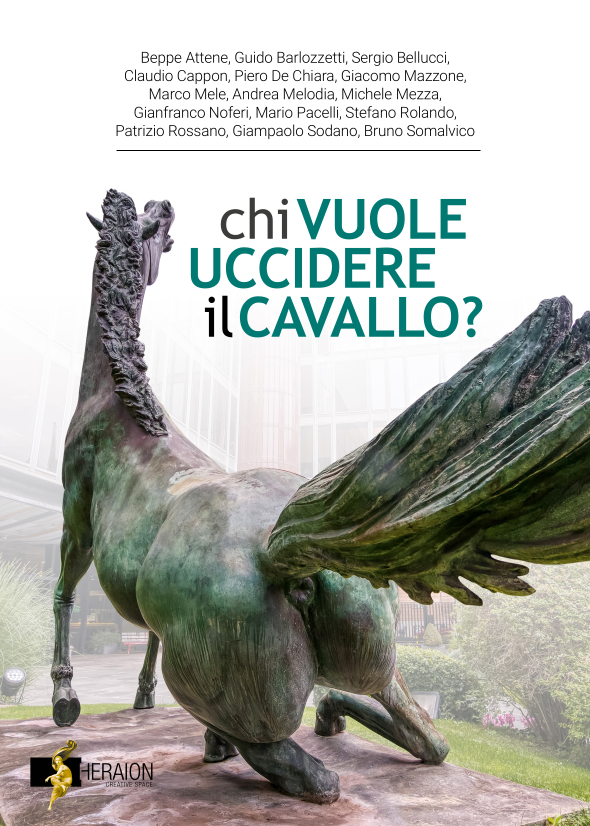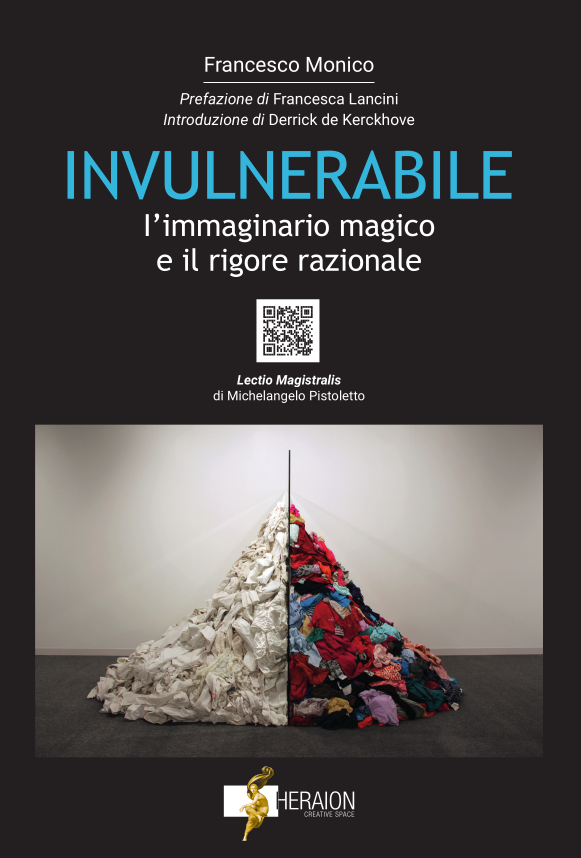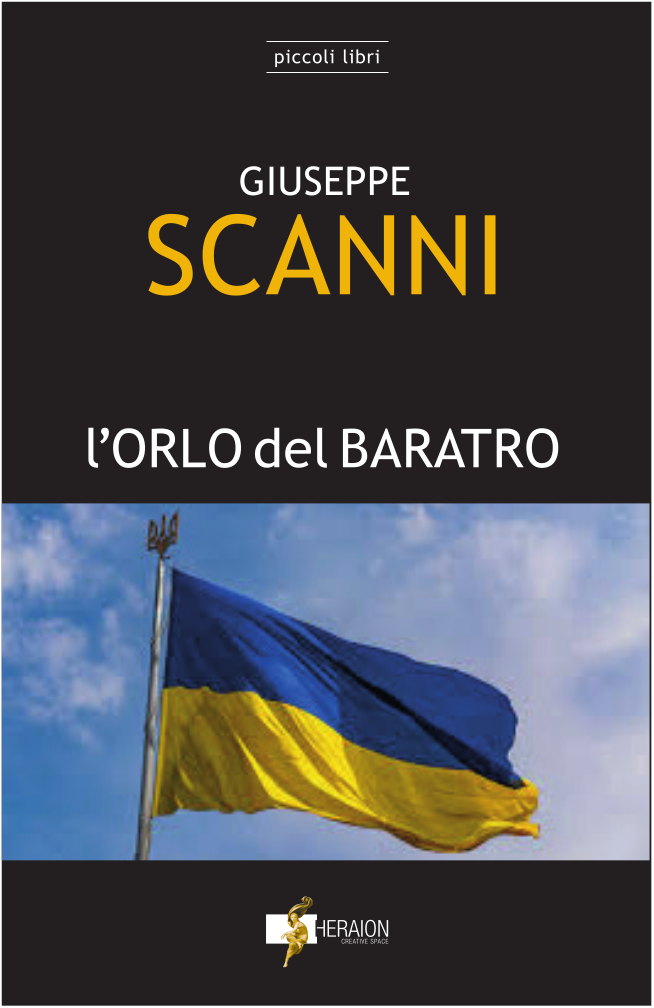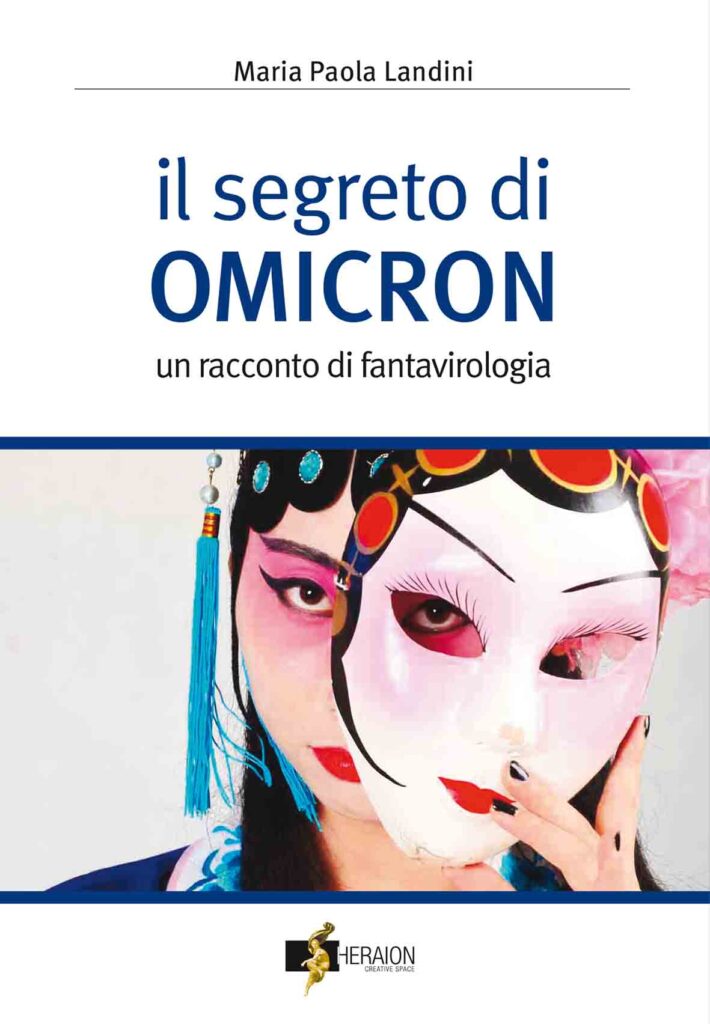The rise of political science in ancient Greece
Abstract: La filosofia politica della civiltà occidentale ha avuto origine nell’antica Grecia, tra il VII e il VI secolo a.C., durante la transizione dalla monarchia sacra al governo delle città-stato (polis). Atene fu il primo esempio di democrazia con un coinvolgimento diretto dei cittadini nelle decisioni politiche. Tuttavia, il modello democratico ateniese escludeva donne, schiavi e stranieri. Filosofi come Platone e Aristotele criticarono la democrazia, ponendo l’accento il rischio che essa portasse al potere demagoghi e individui poco adatti. La giustizia e la legge umana, spesso in contrasto con la legge divina, divennero centrali nelle riflessioni politiche, con autori come Eschilo e Sofocle che percorsero queste tensioni nelle loro opere.
The political philosophy of Western civilization emerged in ancient Greece between the 7th and 6th centuries BC, during the gradual transition from monarchical and sacred rule to the governance of the city-state (polis). This shift marked the movement of political power from aristocratic palaces, where it had long been concentrated, into the public arena, specifically the agorà, the central square where citizens became the active participants in political life.
Athens was the first to undergo this transformation and became the enduring model for democratic governance, defined by the direct involvement of citizens in decision-making and the election of public officials. The foundations of Athenian democracy, which influenced political thought for centuries, were laid by Cleisthenes’ reforms at the end of the 6th century BC, further advanced by Pericles in the mid-5th century.
In this system, political authority resided in the Assembly (Ecclesia), where all male citizens of legal age and free status had the right to participate. The Ecclesia, as the highest legislative and governing body, allowed for open debate, with decisions on matters of public interest made by majority vote. Additionally, a more specialized body, the Council of the Five Hundred (Bulé), was responsible for administrative affairs. The Athenian model thus represented a direct and participatory democracy, where public discourse and the exchange of ideas were central to governance.
Success, failure and contradictions of democracy
The “theoretical” success of the Athenian democratic model—evident in the numerous references made by later thinkers—stands in stark contrast to the widespread criticisms of democracy from political philosophers of antiquity. This seeming contradiction is, in fact, not a paradox at all. Ancient Greek society, and particularly Athenian society, remained deeply rooted in the privileges of aristocrats and landowners, especially in economic terms.
While the expansion of political participation, alongside the principle of isonomy (the idea that all citizens are equally subject to the law), marked a shift towards inclusivity, it did little to challenge the underlying social and economic inequalities. Athenian democracy was largely confined to a small group of free men, with significant portions of the population—namely slaves, women, and metics (foreigners permitted to engage in commerce and crafts)—entirely excluded from political life.
The historian Thucydides, in recounting the brutal extermination of the Melians by the Athenians during the Peloponnesian War (431–404 BC), emphasized that, despite Athens’ formal political structure, it was the “law of force” that ultimately governed human relations. This reveals the underlying tension between democratic ideals and the realities of power in ancient Greece.
In the work attributed to Aristotle, The Constitution of the Athenians, the author, who aligns with aristocratic and oligarchic thought, portrays democracy as a system that elevates the “rogue” to power, allowing them to dominate both the landowning class and neighbouring cities. Plato similarly elaborates on this critique in a more comprehensive manner in The Republic.
From the outset, a central concern for political theorists has been identifying the best form of government, or what might be termed the “right political order.” This inquiry can be traced back to Herodotus’ Histories, where we find the earliest formulation of the tripartite division of governmental systems. Despite variations over time, this classification has remained foundational to political thought, encompassing the rule of one (monarchy), the rule of a few (oligarchy), and the rule of many (democracy).
Herodotus narrates a story set in Persia, following the assassination of a magician who had unlawfully seized the throne. He describes the ensuing debate among the Council of Seven, where differing views are presented on the most appropriate structure for the new state. This discussion reflects the ongoing struggle in political philosophy to determine the ideal form of governance.
Octanes, the first speaker, extols the virtues of popular government, presenting it as the superior system since it minimizes the risks of tyranny, rotates power among citizens, and is always subject to the assembly’s approval. Another speaker advocates for the rule of the few, or aristocracy, which he defines as the “rule of the best” (áristoi in ancient Greek), suggesting that governance should be entrusted to the most capable individuals. Finally, Darius argues in favour of monarchy, asserting that rule by a single individual—provided that person is the best among the community—ensures unity and prevents the divisions that can paralyze decision-making in other systems.
Two key factors contribute to viewing the success of Athenian democracy as “posthumous.” First, the most influential political works of the classical era—Plato’s Republic, Politicus, and Laws, as well as Aristotle’s Politics—all advocate for governance by elites, thereby supporting oligarchy. Second, these texts were written during a period when Athenian democracy had been defeated by the oligarchic regime of Sparta following the Peloponnesian War.
Thucydides, who chronicled these wars, points to Athenian democracy’s very structure as one of the causes of its downfall. The system’s reliance on the random selection of officials and its openness to all citizens had allowed demagogues to gain influence through populist tactics, ultimately leading the city into disastrous decisions that contributed to its defeat.
Virtues and justice
Homer was the first to narrate the ideals of virtue in ancient Greece, with the Iliad and the Odyssey serving as central texts for the education of young people. These epics convey an ethical framework rooted in the nobility of the soul and the universal virtues of their protagonists, transcending political or social boundaries. However, the values they depict are not without complexity and fragility. Heroic morality, founded on physical strength, cunning, and personal honour, stands in stark contrast to the principles of rational law and the structure of the State.
The tension between the individual hero’s strength and the rationality of virtue finds its first resolution in the gradual emergence of the concept of justice. Themis, the personification of justice, symbolizes a higher order—a shared rule that blends divine authority with religious principles, representing the foundation of law and governance. This marks the early development of an ethical system that begins to reconcile individual valour with the collective ideals of justice and societal order.
This early, mythological vision of justice was gradually supplanted by the concept of Dike, which represents objective reason and knowledge ingrained in collective memory—wisdom shared by all humanity. Dike allowed for conflict resolution through rational compromise between opposing viewpoints. This secularization of justice coincided with the rise of the notion of individual guilt. No longer were individuals responsible for the fates of their entire lineage; instead, each person became accountable only for their own actions, breaking away from the belief in ftonos ton théon—the “envy of the gods”—whereby descendants were often seen as bearing the burdens of their ancestors’ sins.
Hesiod, in his Works and Days, fully abandoned the values of heroic morality. He proposed a new ethical system that celebrated the virtue of productive labour, particularly in the agricultural world, and emphasized justice as the defining trait of human life. This marked a significant shift toward a more practical and communal understanding of morality.
A decisive break from the divine conception of justice came with Aeschylus. In his Oresteia trilogy, he explores the contradictions inherent in divine justice, particularly through the story of Agamemnon’s return and the cycle of vengeance that follows. The resolution comes with the establishment of a human court—the Aeropagus—symbolizing the triumph of civic legal wisdom over the chaotic and often paradoxical nature of divine justice. This shift underscored the evolution toward a legal system grounded in human rationality and political order, rather than religious or mythological imperatives.
Aeschylus sought to exalt the political institutions of Athens, emphasizing that while they were secular, they were grounded in a divine origin. This idea finds support in the political framework established by Solon, one of the seven wise men of Greece and archon of Athens in 594 BC. Solon, renowned for his bold and democratic legislative reforms, became the champion of eunomía (good governance), where the law (nomos) of Athens was deemed “good” (eu) because, although human in origin, it closely mirrored natural or divine law.
The core objective of Solon’s political system was the pursuit of harmony, aiming to mediate the conflicting interests of different social classes and prevent civil unrest, particularly the ongoing tension between the aristocracy and the common people (demos). Solon’s reforms struck a delicate balance between preserving the status quo and implementing progressive changes that benefited the lower classes. These reforms included the liberalization of land ownership, the abolition of debt slavery, and the cancellation of debt-related mortgages, all of which aimed at reducing economic inequalities and ensuring social stability.
The autonomous nature of human law and its tension with divine law form the foundation of two key intellectual traditions: that of the tragic poets and the Sophist philosophers. In Sophocles’ tragedy Antigone, the law of the city is placed above the unwritten divine laws and the customs of a people, illustrating the supremacy of civic authority over sacred mandates.
The Sophist philosophers, on the other hand, equated human law with the “profit of the strongest.” This concept rested on an underlying principle of absolute relativism. For the Sophists—such as Gorgias, Protagoras, Hippias, and Critias—truth was not an absolute but rather subjective, with any viewpoint being considered valid if it was supported by a compelling argument. To them, political art was simply the “art of persuasion,” a tool for garnering consensus and advancing personal or factional interests.
Thucydides, in his historical analysis, further secularized the concept of law. He interpreted the political dynamics of the city-state as stemming from concrete causes, viewing them through the lens of logical and historical necessity rather than divine intervention or fate (Tyche). For Thucydides, the driving forces behind political action were not destiny but rather the will to power and the pursuit of self-interest, marking a pivotal shift in understanding political motives as rooted in human ambition rather than supernatural influence.
Xenophon adopted a contrasting stance on governance, particularly in his Cyropaedia, which was written as a guide for the education of the Persian prince, Cyrus the Younger. In this work, he presents a vision of politics that is both authoritarian and peaceful (irenic). He likens the ruler to the head of a family, drawing a parallel to the Persian king Cyrus the Great’s relationship with his subjects. Xenophon argues that only as an absolute ruler can a sovereign fully dedicate himself to the pursuit of the public good. In doing so, the ruler not only ensures the welfare of the state but also demonstrates magnanimity and benevolence toward the people, embodying the ideal of a compassionate yet strong leader.
SEGNALIAMO
-
RESTITUIRE RAZIONALITÀ ALLE RELAZIONI FRA GLI STATI, PER EVITARE CAOS E AUTODISTRUZIONE

di Luigi Troiani Si intende per comportamento razionale del sistema internazionale, ogni azione che questo compia nel solco della pacificazione e della giustizia tra le nazioni. La razionalità del sistema e delle sue componenti, siano essi stati, organizzazioni internazionali, ONG, religioni organizzate, si esprime attraverso comportamenti in linea con le due esigenze superiori sistemiche di…
-
MANIFESTO POLITICO DEL CIVISMO IN TOSCANA

di Francesco Carbini
-
L’EUROPA E LA SINDROME DEI MAGNIFICI SETTE

di Andrea Attilio Grilli Il contesto geopolitico internazionale richiede scelte nuove, profondamente diverse dall’idea che soprattutto l’Europa si era fatta del futuro. Si era affermata, infatti, una visione statica del futuro dell’Umanità dove il ciclo di vita nascere-morire si sarebbe sviluppato sotto il cappello protettivo degli USA e della NATO. Mentre l’Unione Europea si preoccupava…
-
LA FRATTURA TRA GIORNALISMO CARTACEO E DIGITALE

di Michele Mezza I dialoghi crudi e senza veli con i soldati israeliani in missione a Gaza, in cui si rivelano pratiche ormai ordinarie di tiro al piccione contro inermi palestinesi, che riporta Gianluca Mercuri nella sua newsletter, pubblicata dal sito del Corriere della Sera, non arrivano sulle pagine del quotidiano milanese. Lo stesso accade…
-
COSA RESTA DEI NOSTRI AMORI?

Podcast n. 150 di Stefano Rolando Politica e anni ’60. La versione di ex-ventenni. Non parlo solo di me, ma anche di Enrico Deaglio, Claudio Martelli e Pier Luigi Bersani. Versione audio: Versione scritta: https://stefanorolando.it/?p=10761
-
VITA E MORTE DI ANTONIO BISAGLIA

di Mario Pacelli Domenica 24 giugno 1984: un panfilo a due alberi, il “Rosalù”, naviga davanti alla baia di Paraggi. Sono circa le tre del pomeriggio quando un corpo cade in mare dal panfilo. Una donna bionda sdraiata su un asciugamano balza in piedi. Un uomo si getta in acqua: con una corda il corpo…
-
VIVERE È UN ATTO POLITICO

di Chiara Lopresti Vivere è di fatto un atto politico. Non c’è alcuna sfera della nostra vita che non sia in qualche modo influenzata dalla politica e da quello che crea intorno a noi. Mangiare vegano, biologico, senza pesticidi, da galline allevate a terra ed esclusivamente a terra; boicottare brand e aziende che abbracciano valori…
-
RIPENSANDOCI

di Beppe Attene Erano gli anni ’50 quando nacque e si diffuse il concetto di “familismo amorale”. Nato dalle ricerche di un sociologo americano in un paesino della Basilicata metteva in luce il disinteresse (se non il rifiuto) per i bisogni di carattere collettivo cui corrispondeva un’attenzione sistematica e quasi morbosa per gli obiettivi dell’ambito…
-
PIANO B: UNO SPARTITO PER LA FRATERNITÀ CIVILE

di Leonardo Becchetti Dal NUMERO 6 della rivista IL MONDO NUOVO. Ora in edicola Nel cuore delle democrazie mature, si è consolidata una forma di partecipazione politica che assegna ai cittadini un ruolo passivo: scegliere tra partiti o leader, oppure astenersi. Quest’ultima opzione è purtroppo sempre più diffusa. Ma una democrazia vitale si fonda sulla…
-
DISUGUAGLIANZE

Podcast n. 147 di Stefano Rolando Disuguaglianze. Dal “motore del fare” alla contemplazione. Dalla ricerca “Italia (ancora) diseguale” della Fondazione Friedrich Ebert Stiftung discussa a Milano. Le disparità socioeconomiche territoriali raccontate con l’aggiunta della parola “ancora”. Ma un tempo esse muovevano ideologie, politiche e ascensori sociali. Oggi una parte politica le contempla e l’altra le usa…












